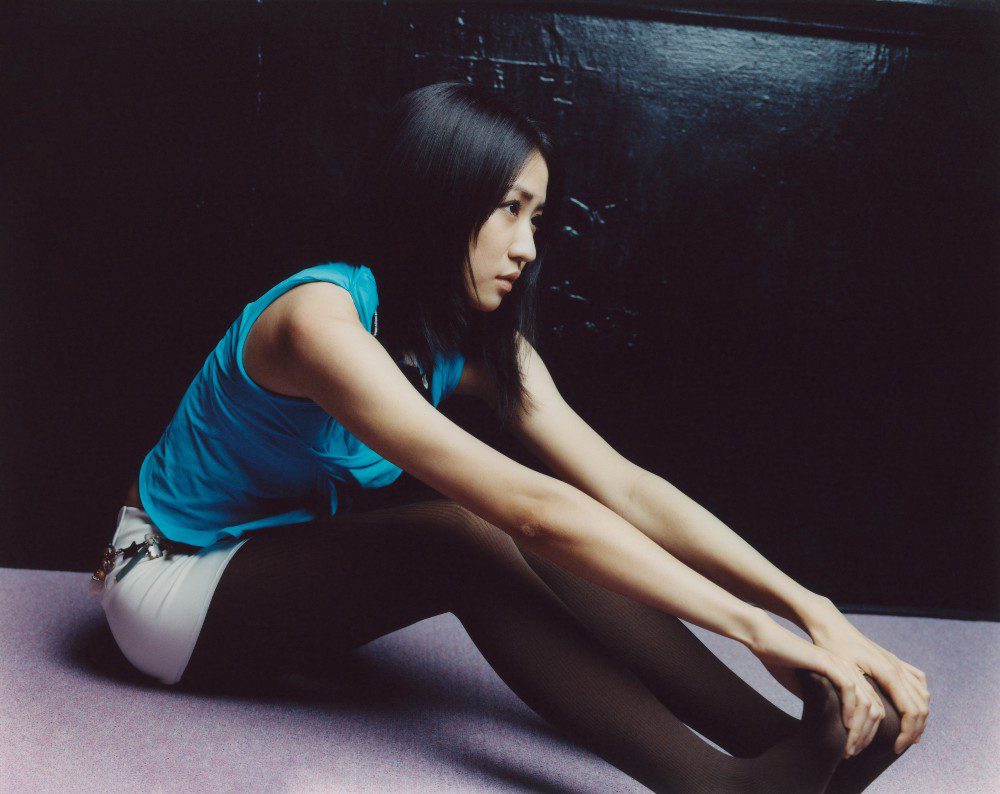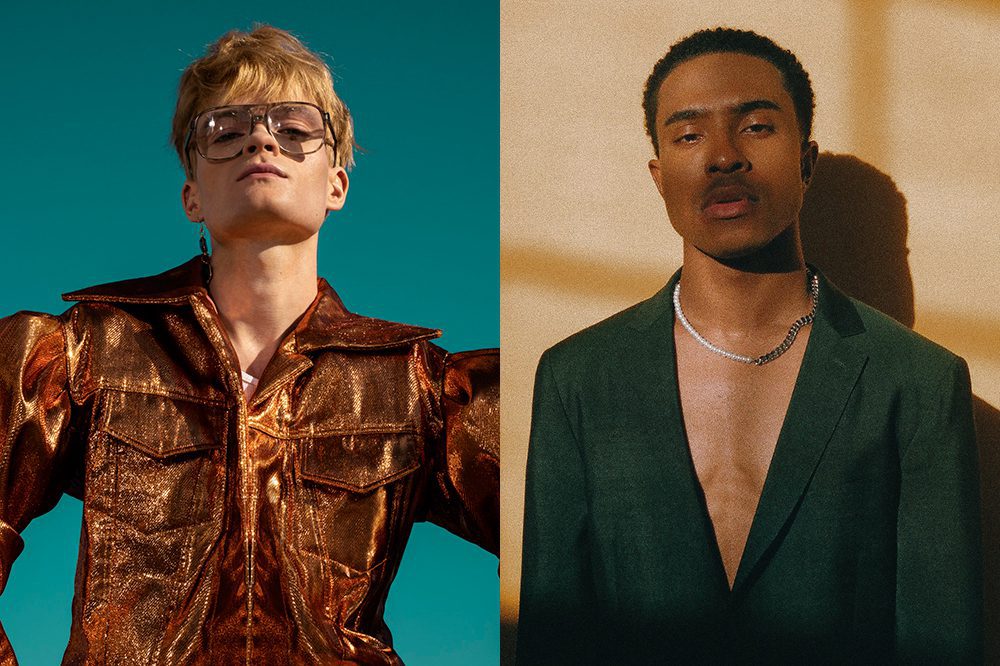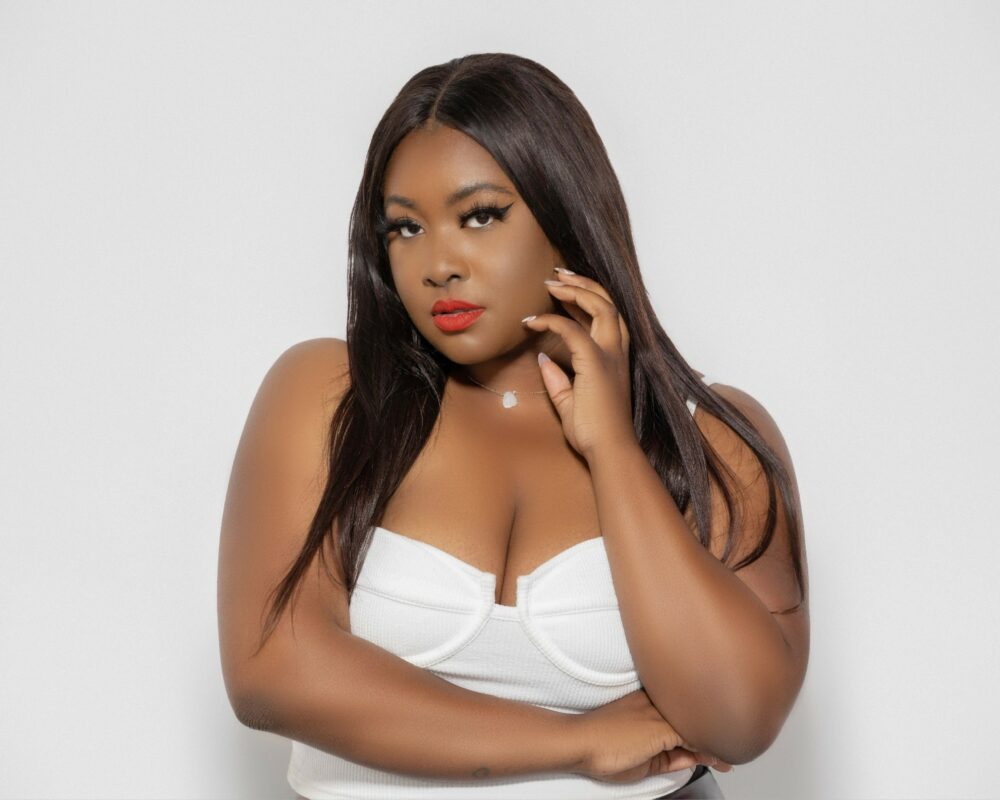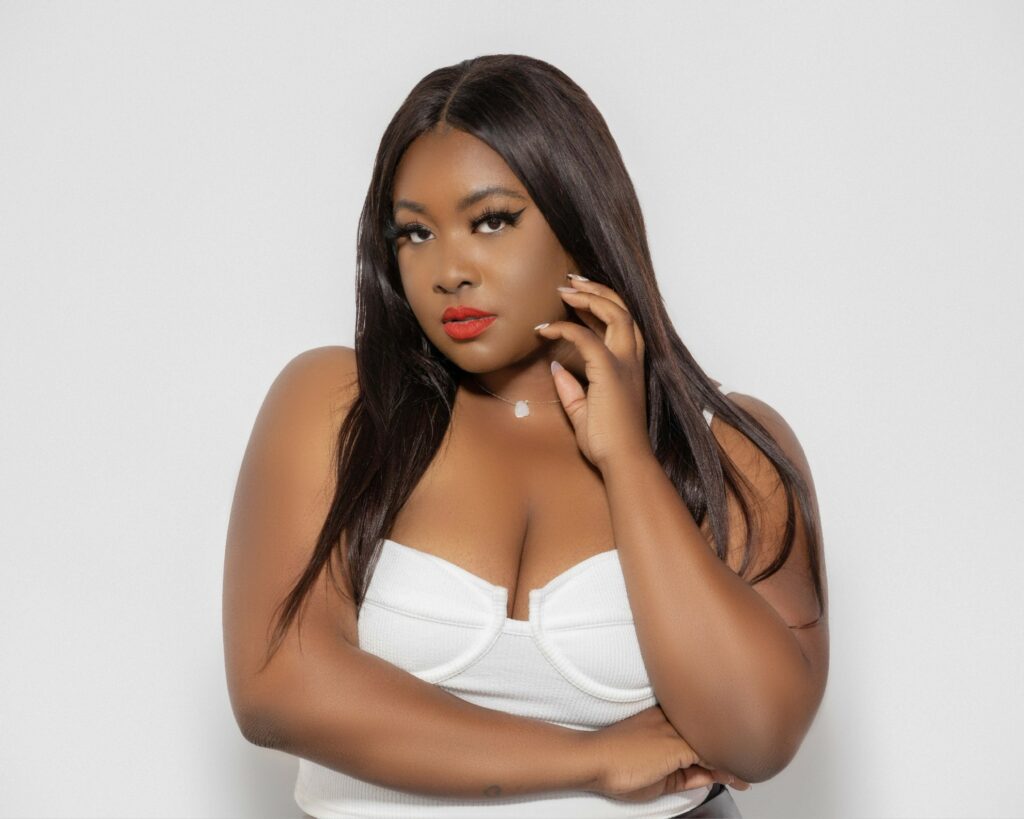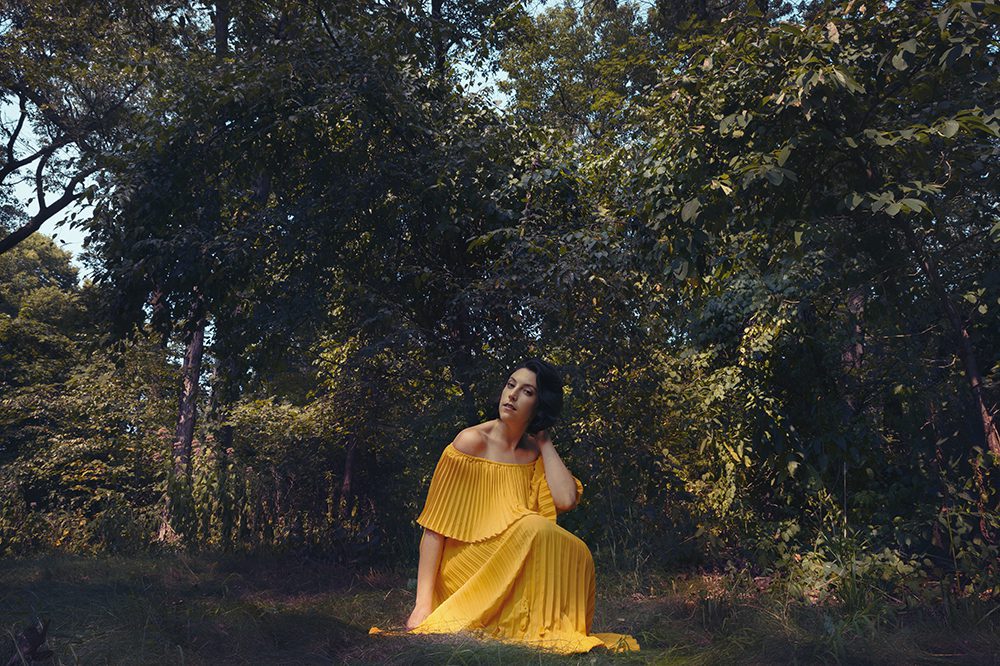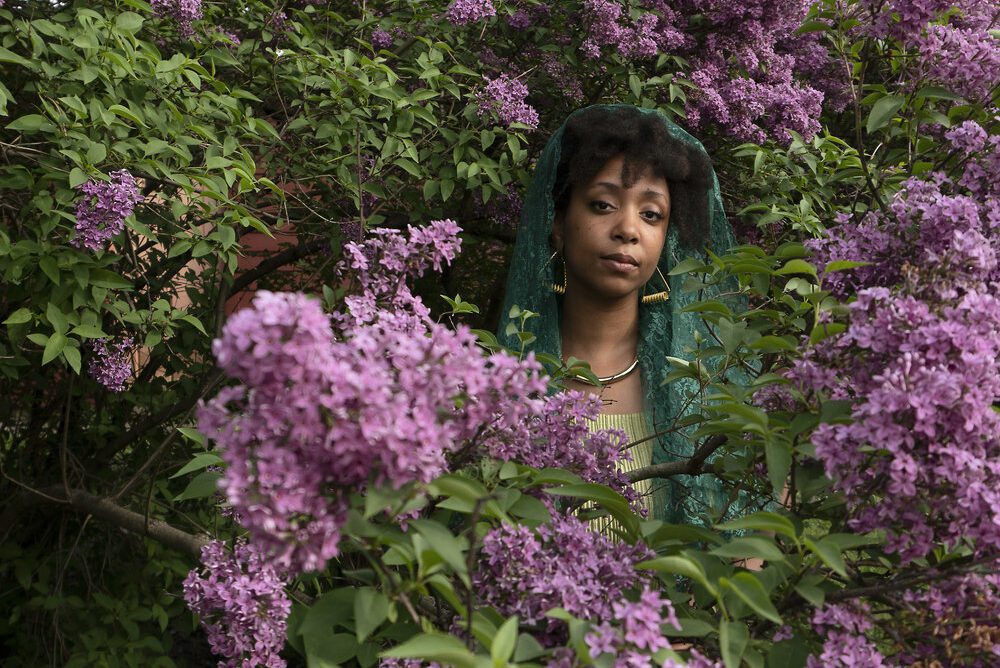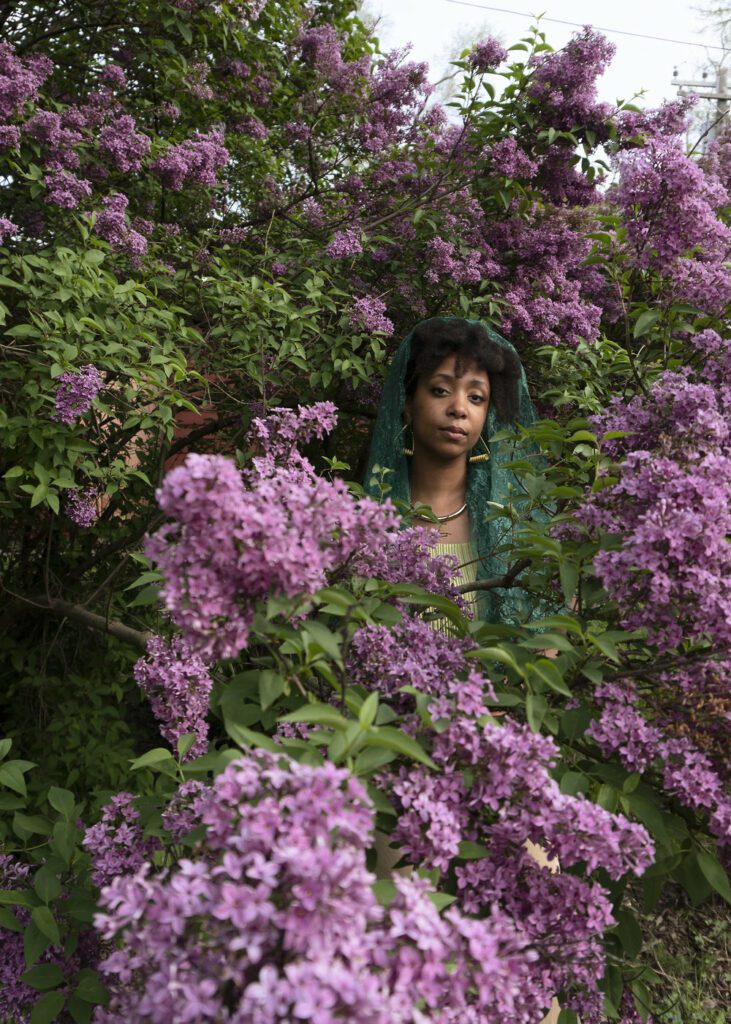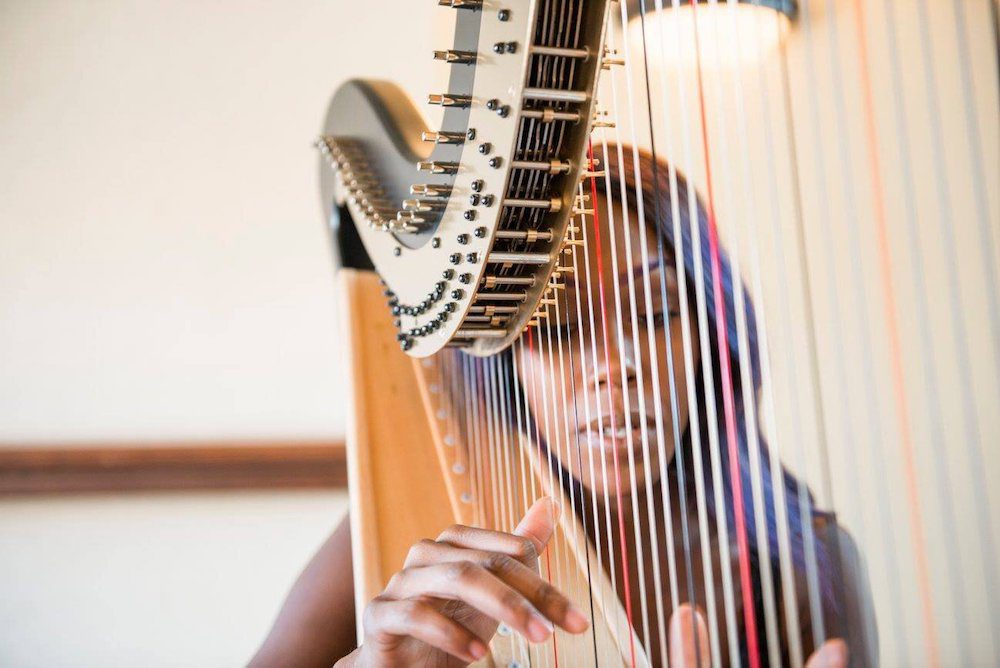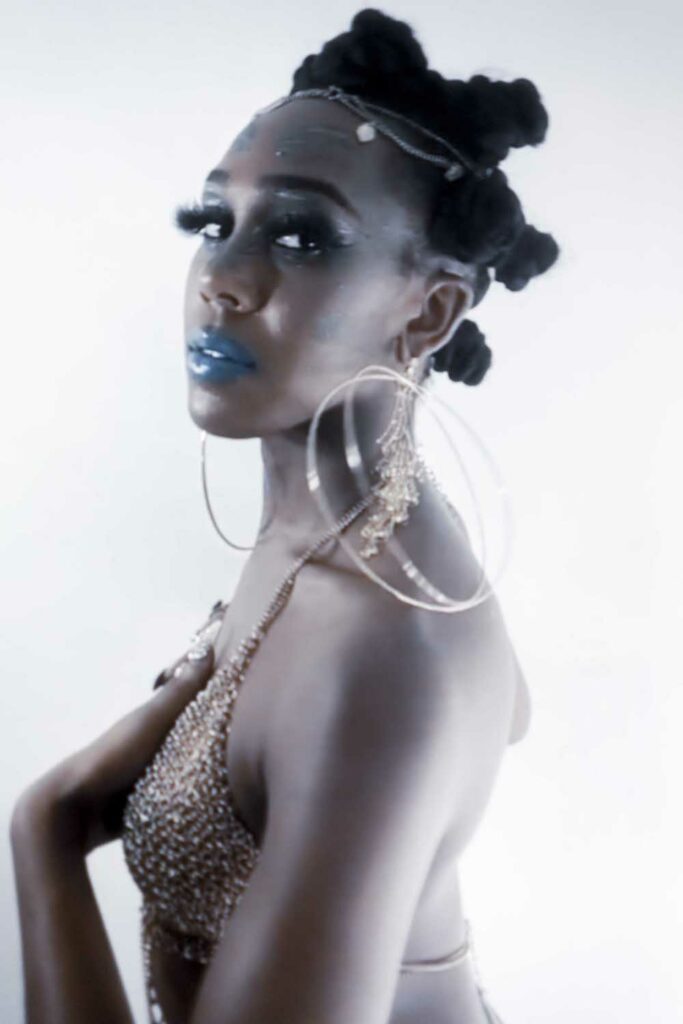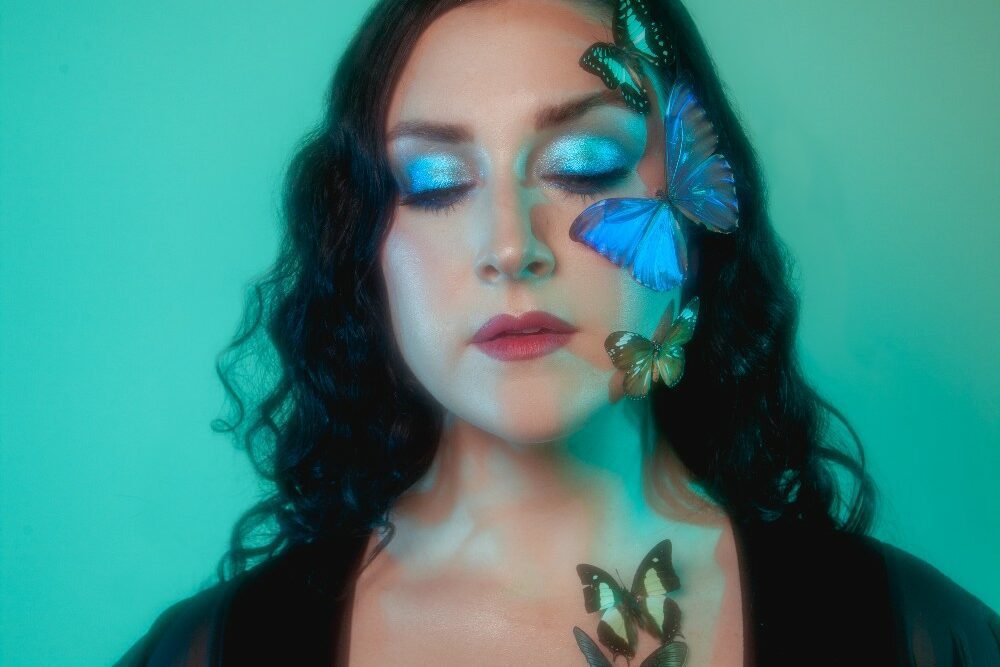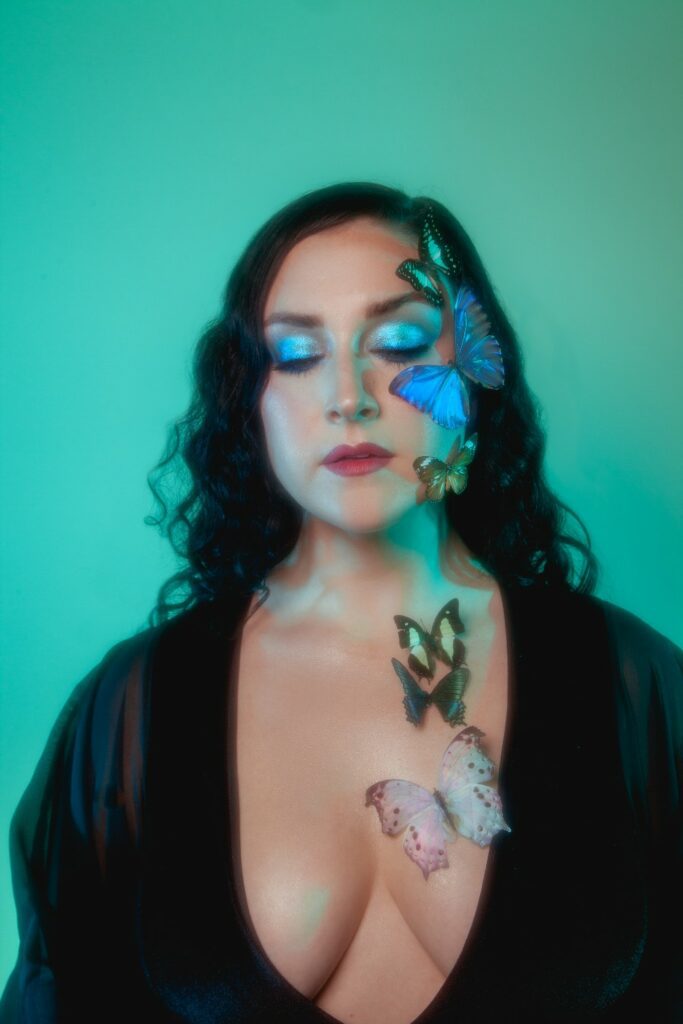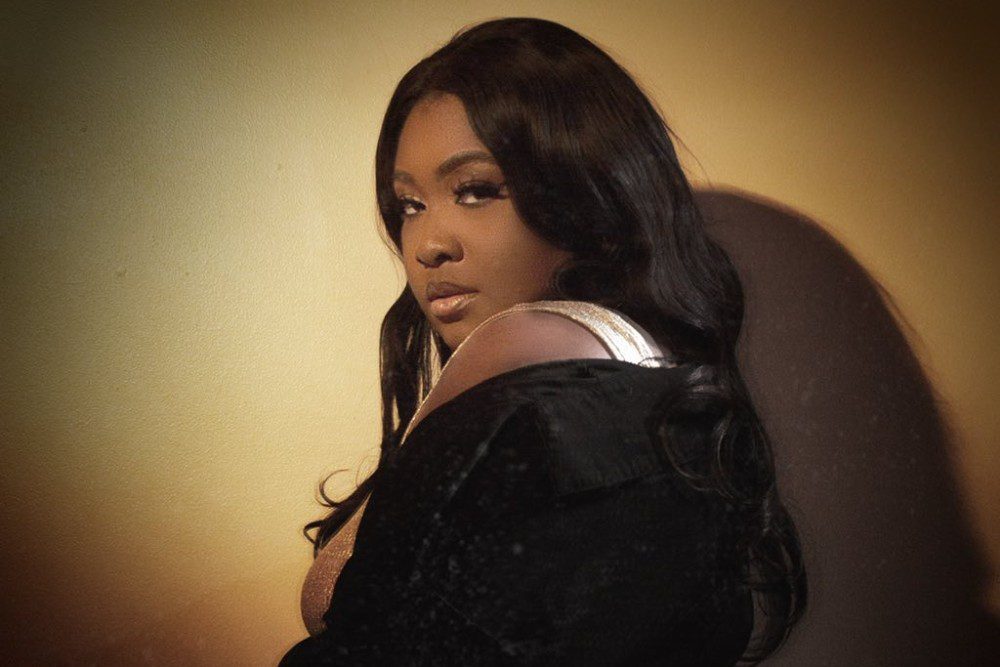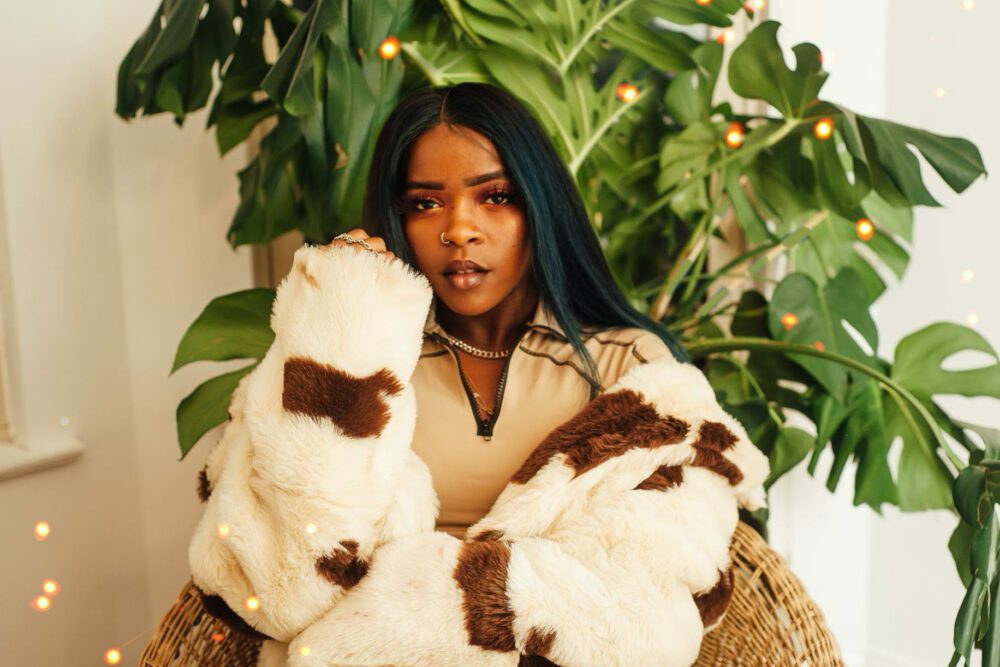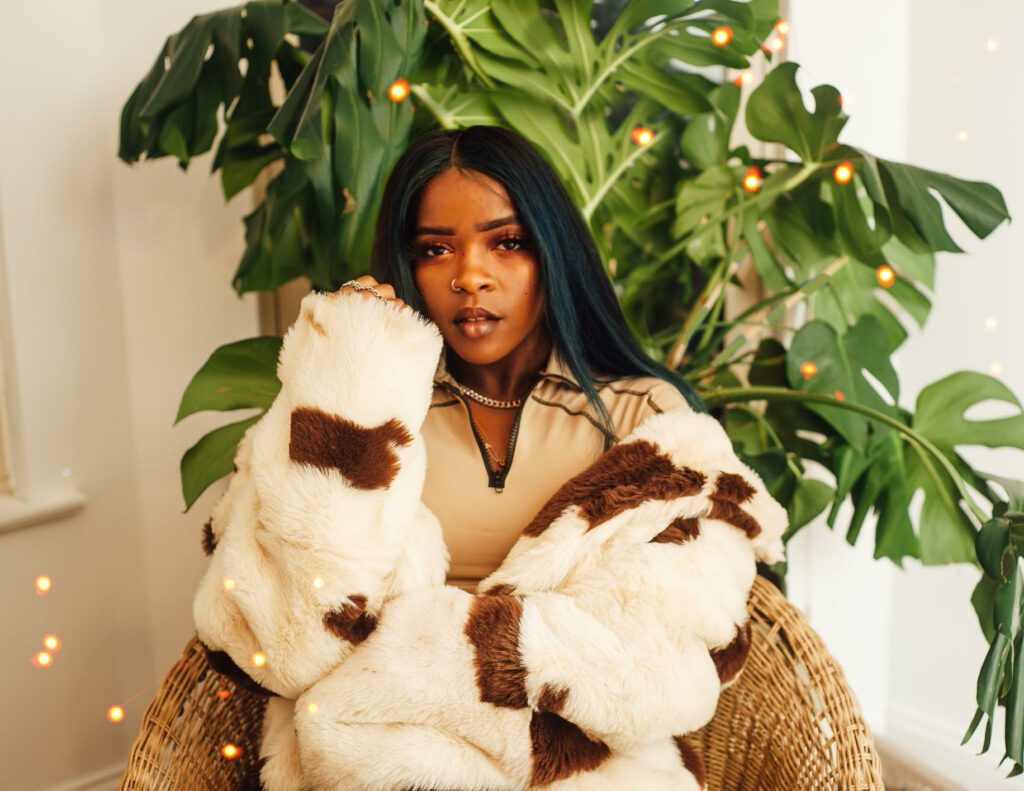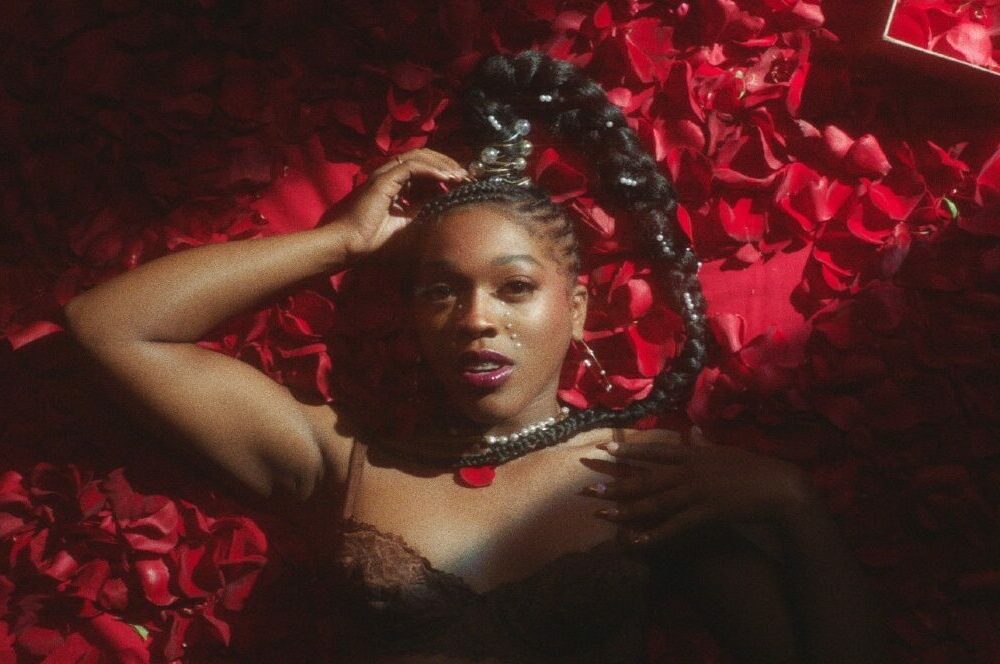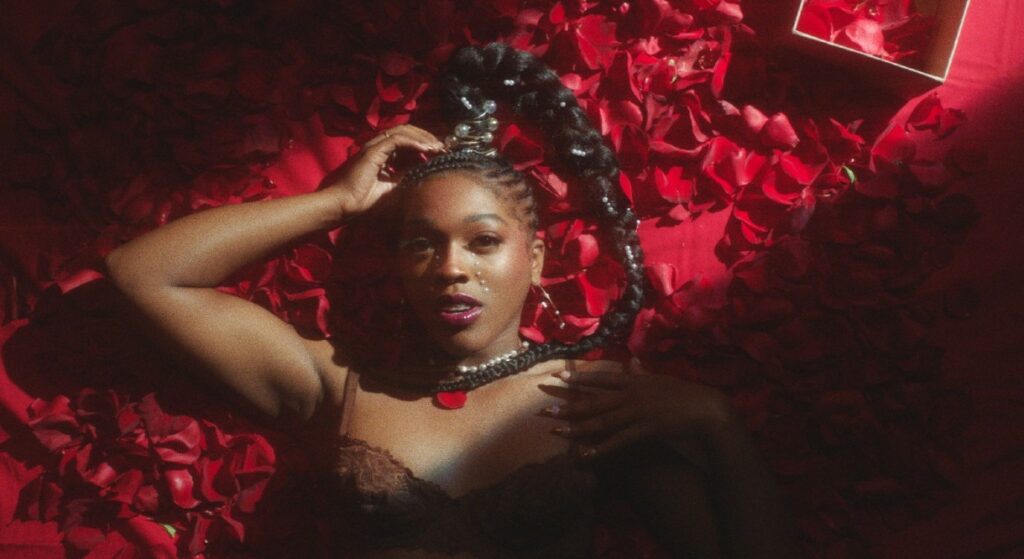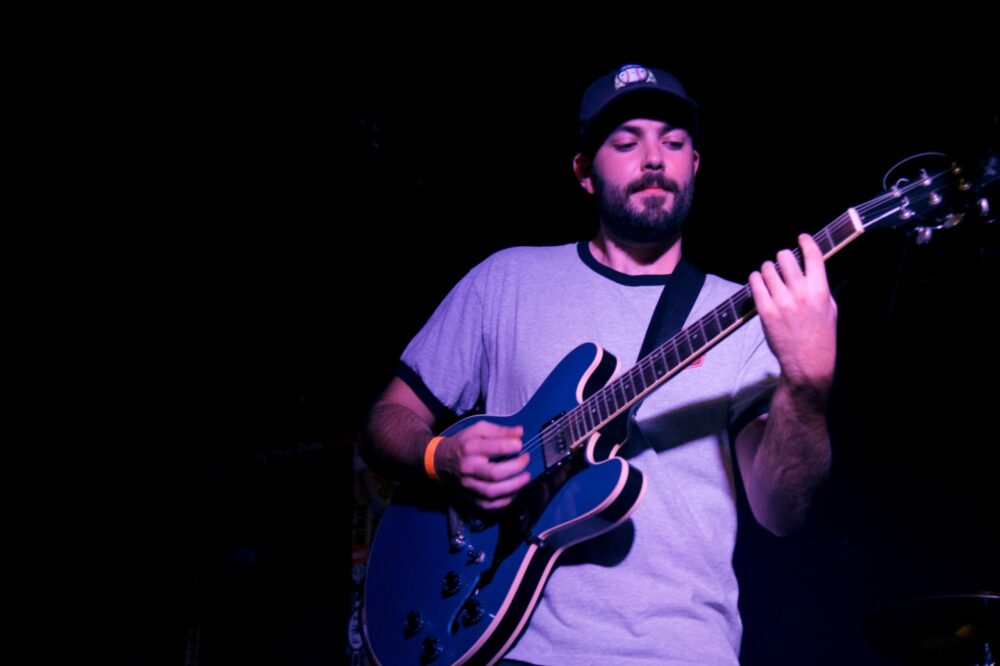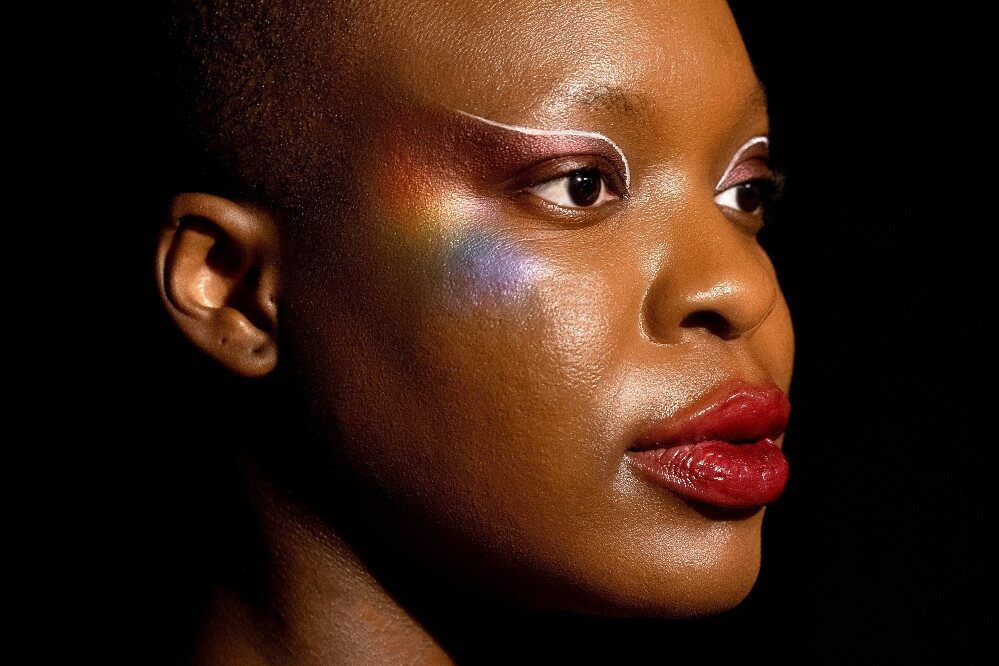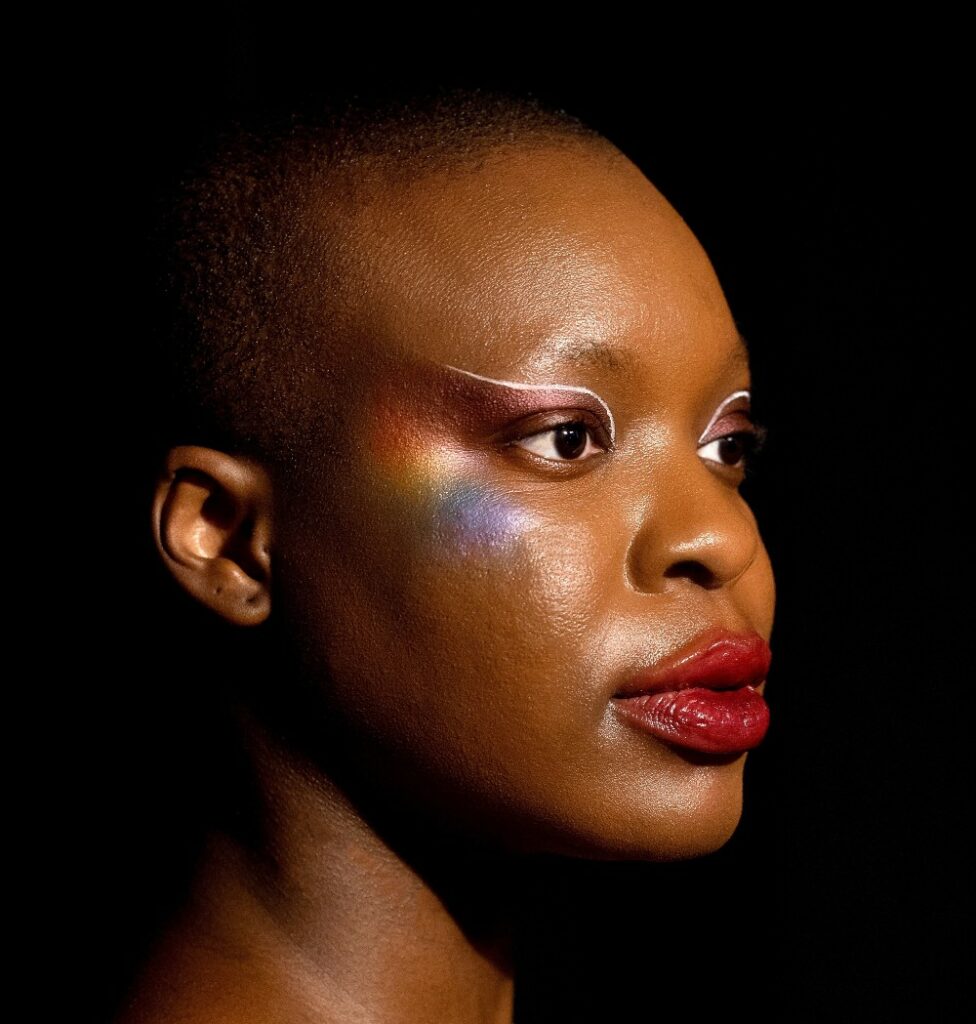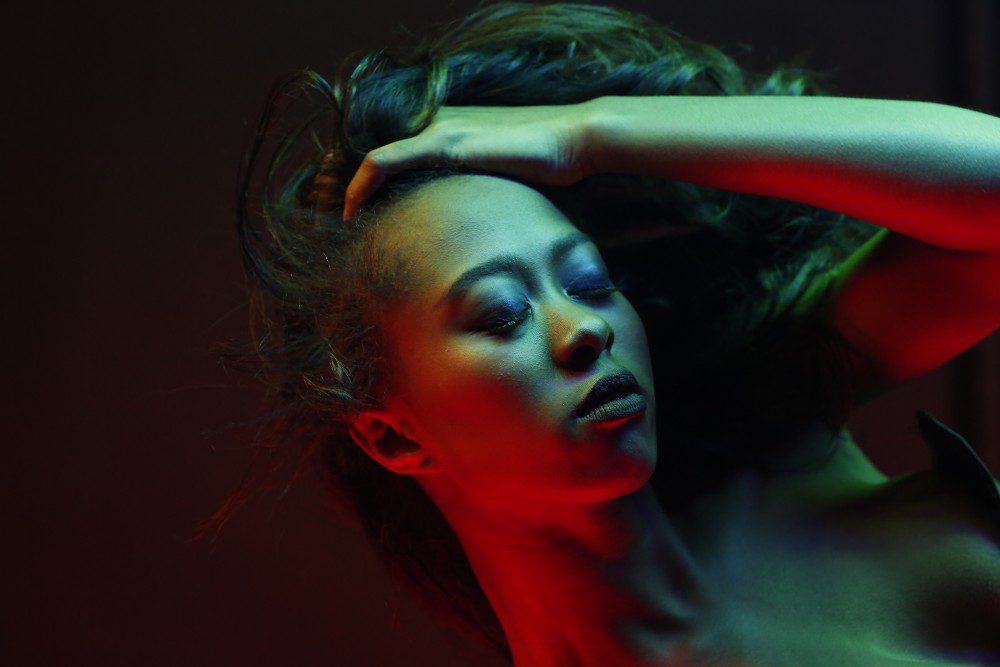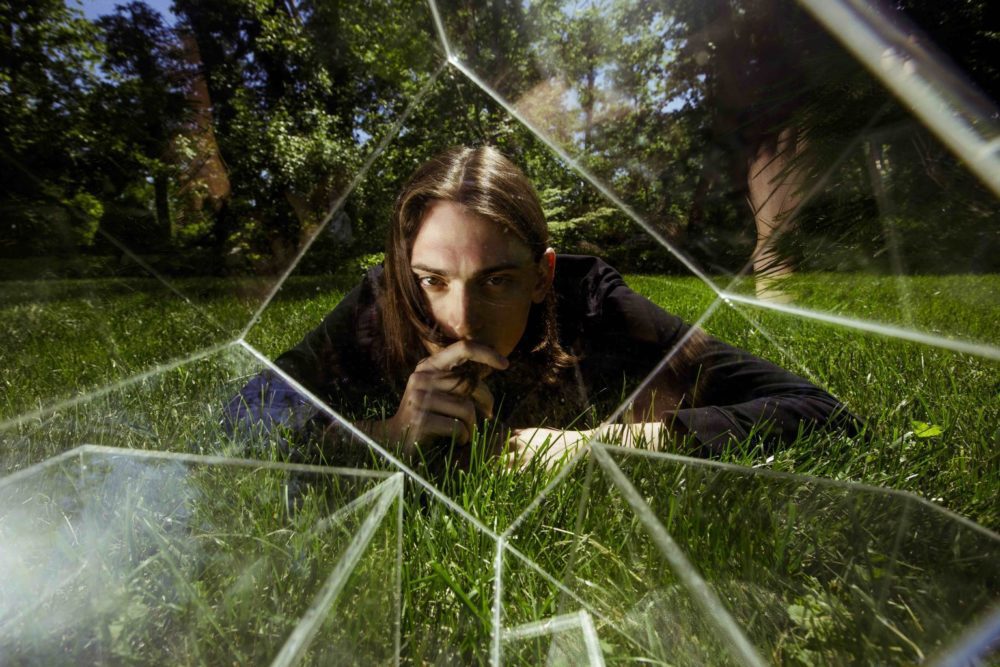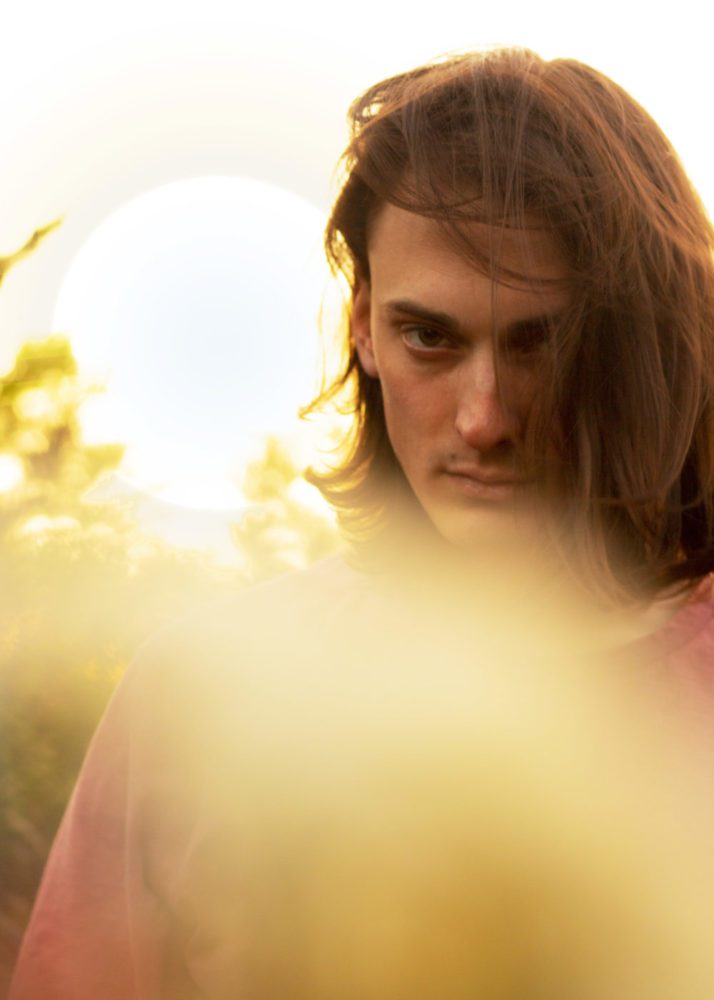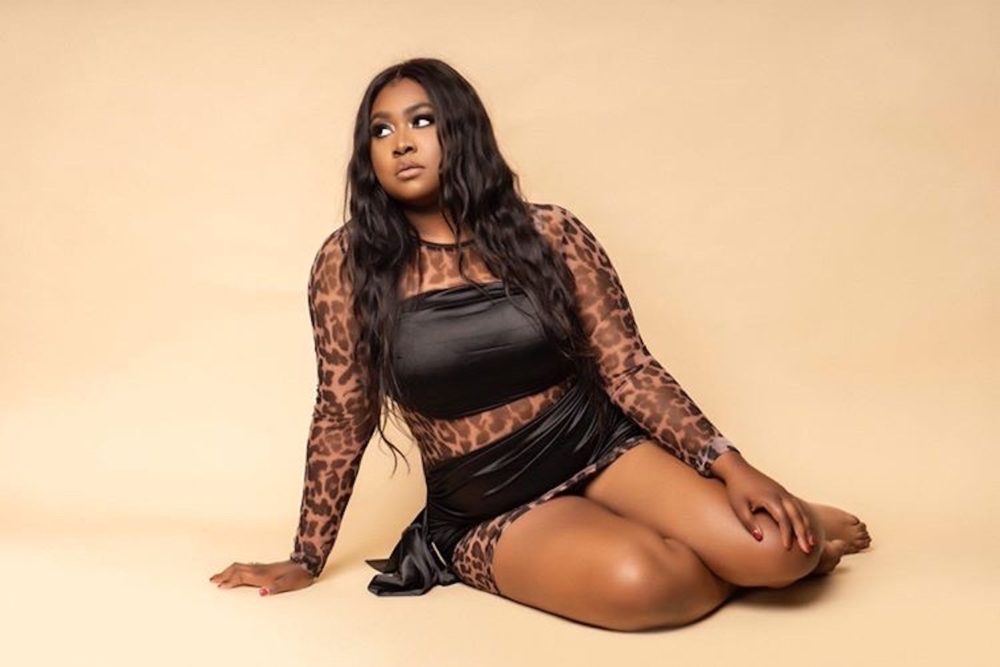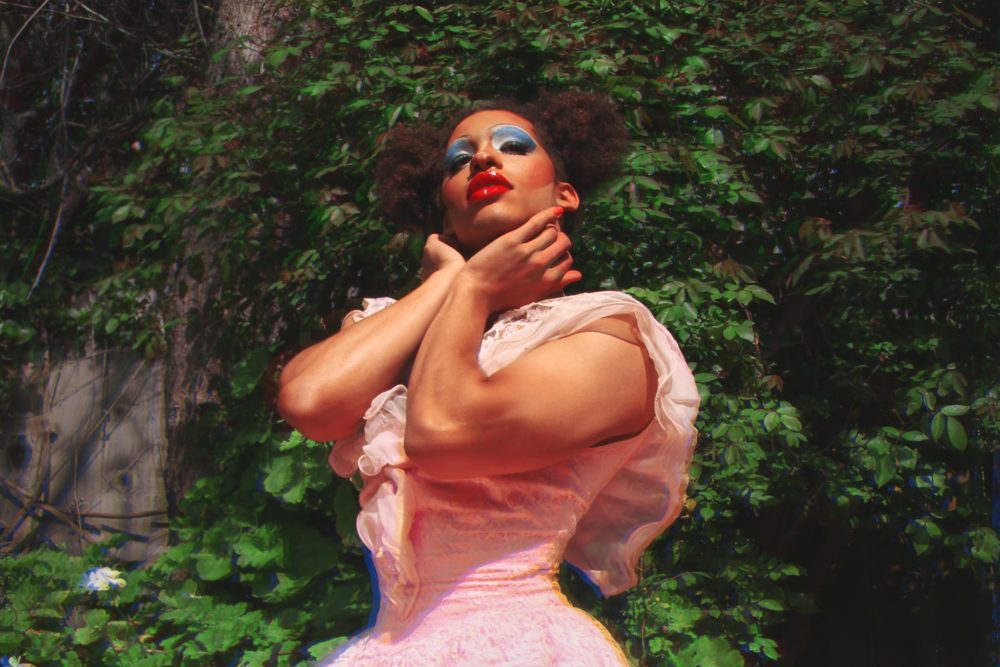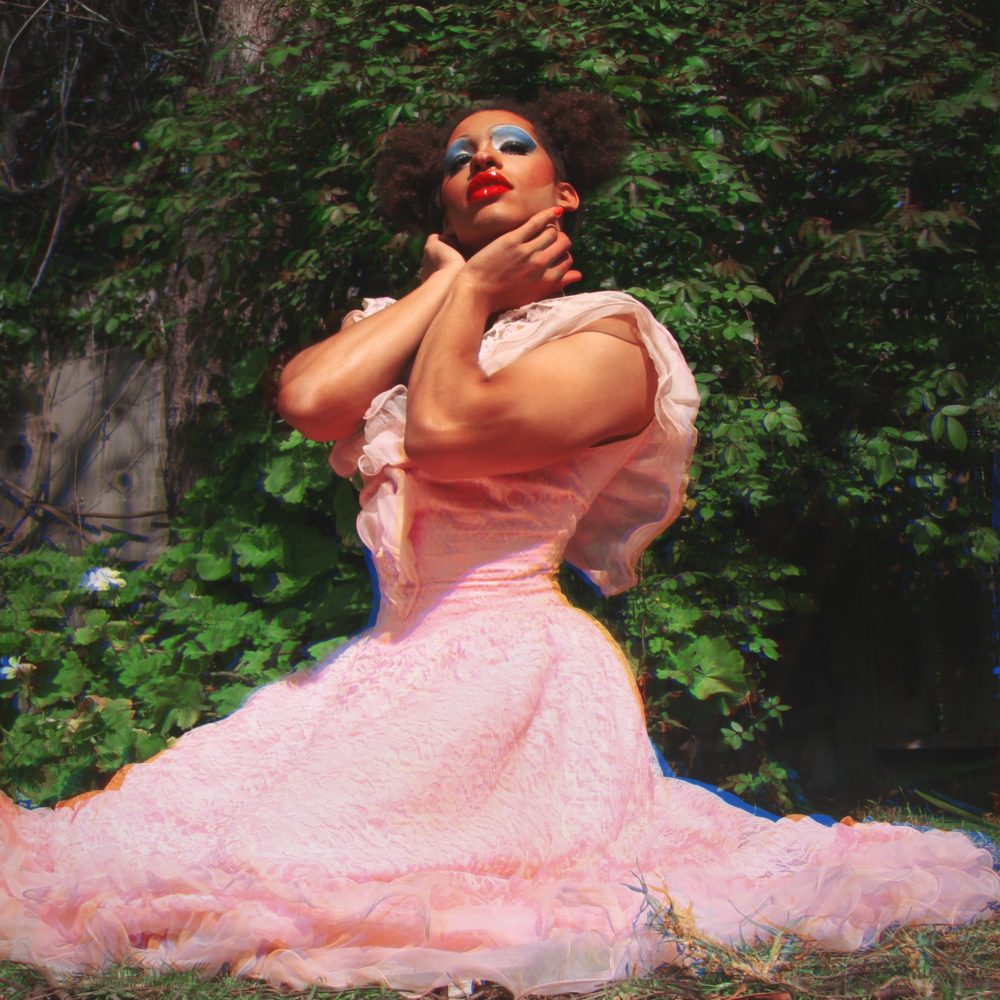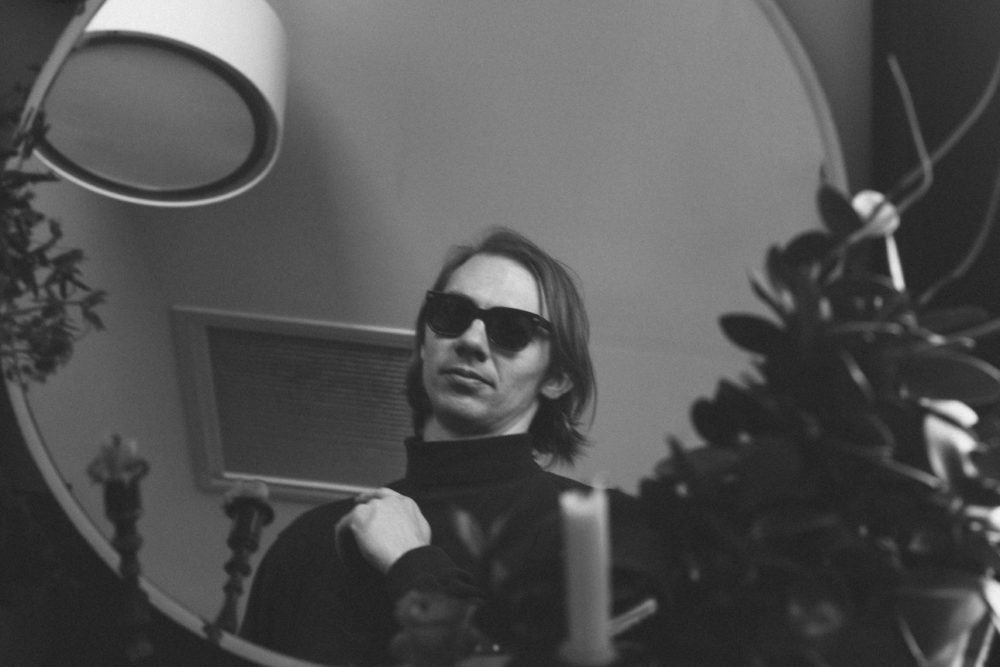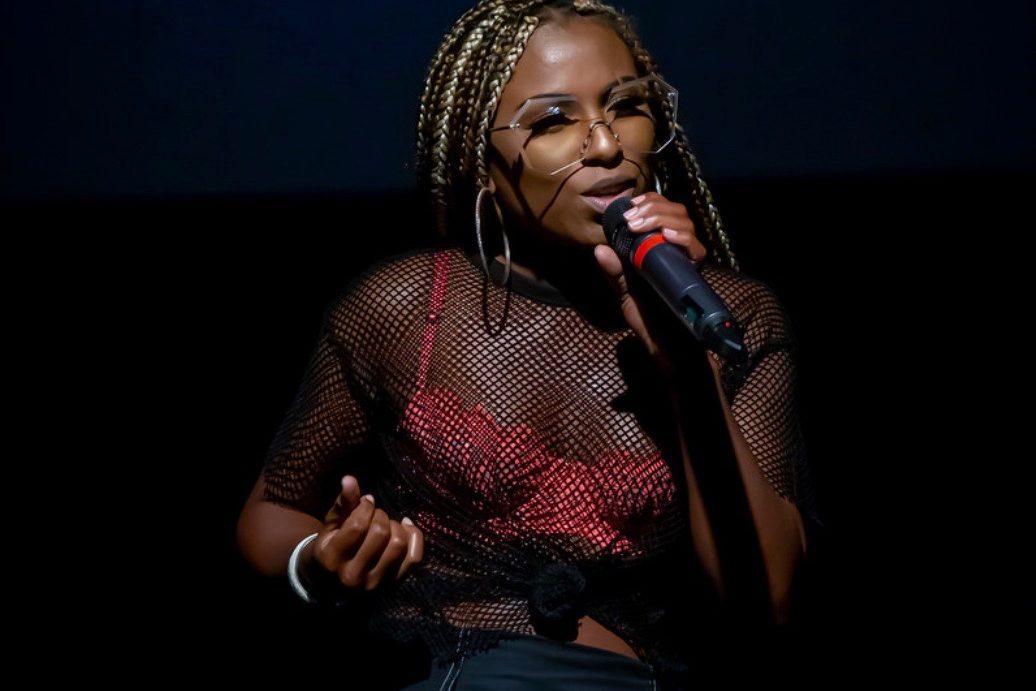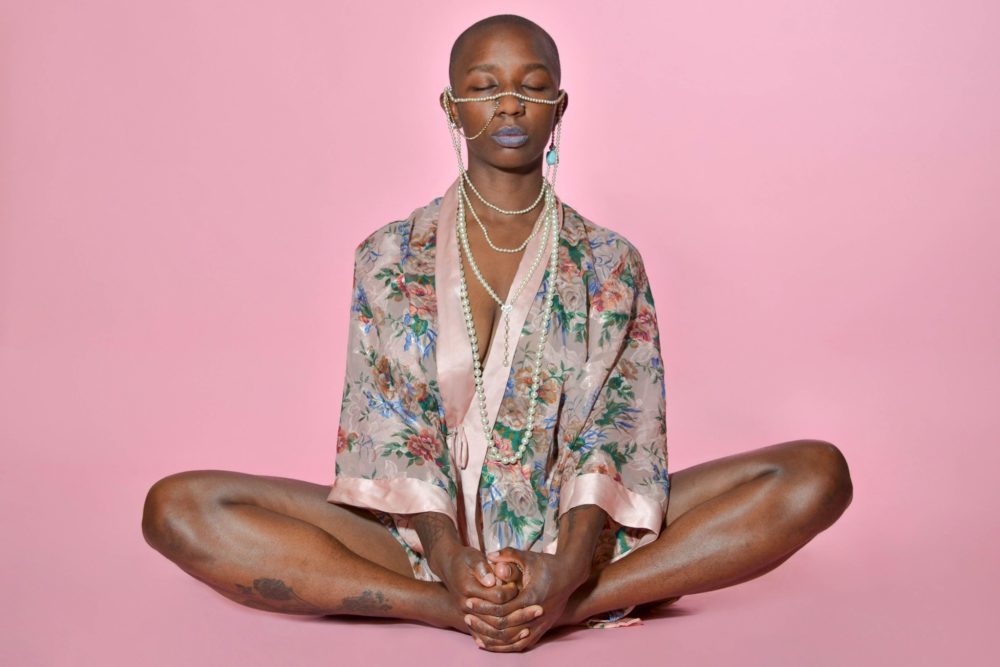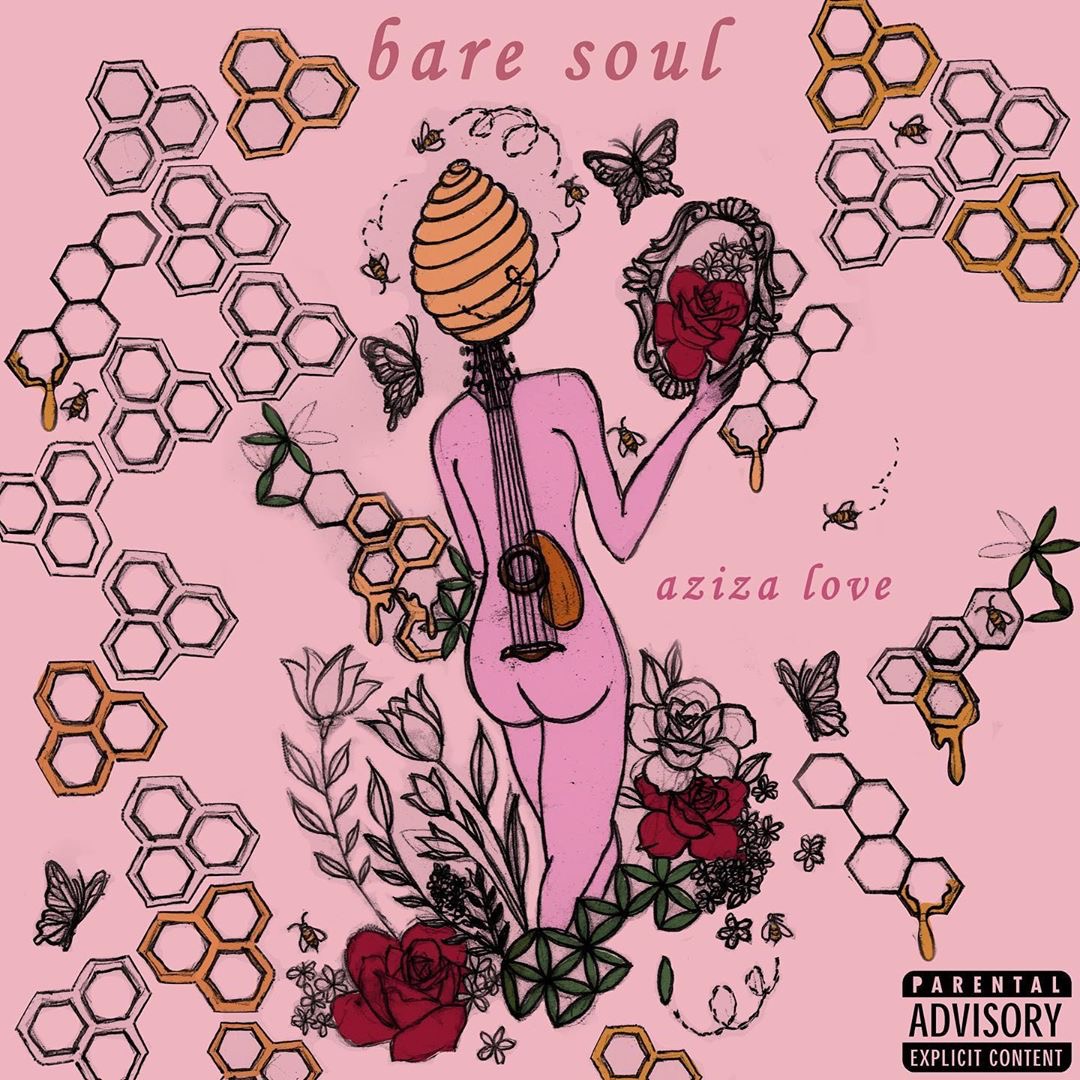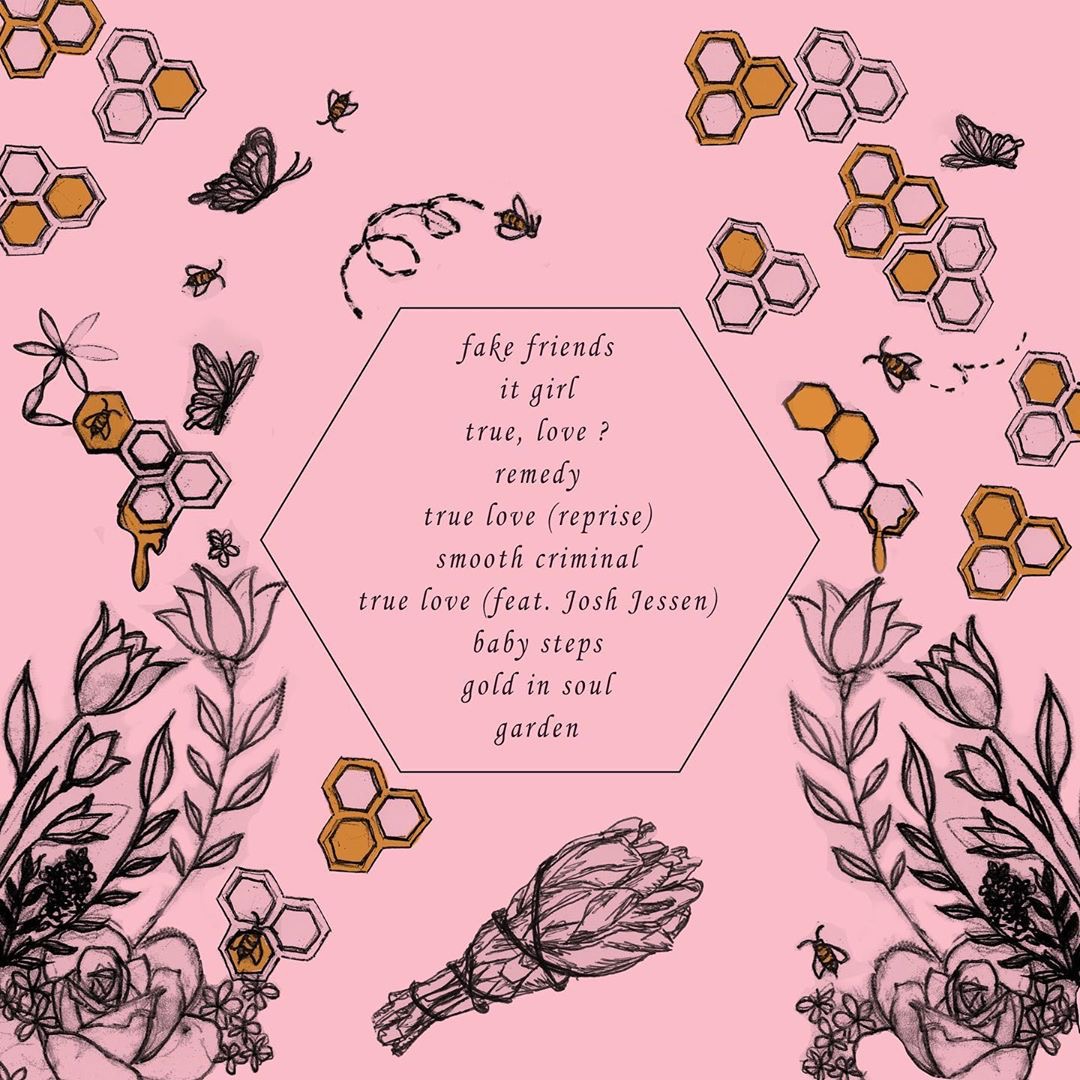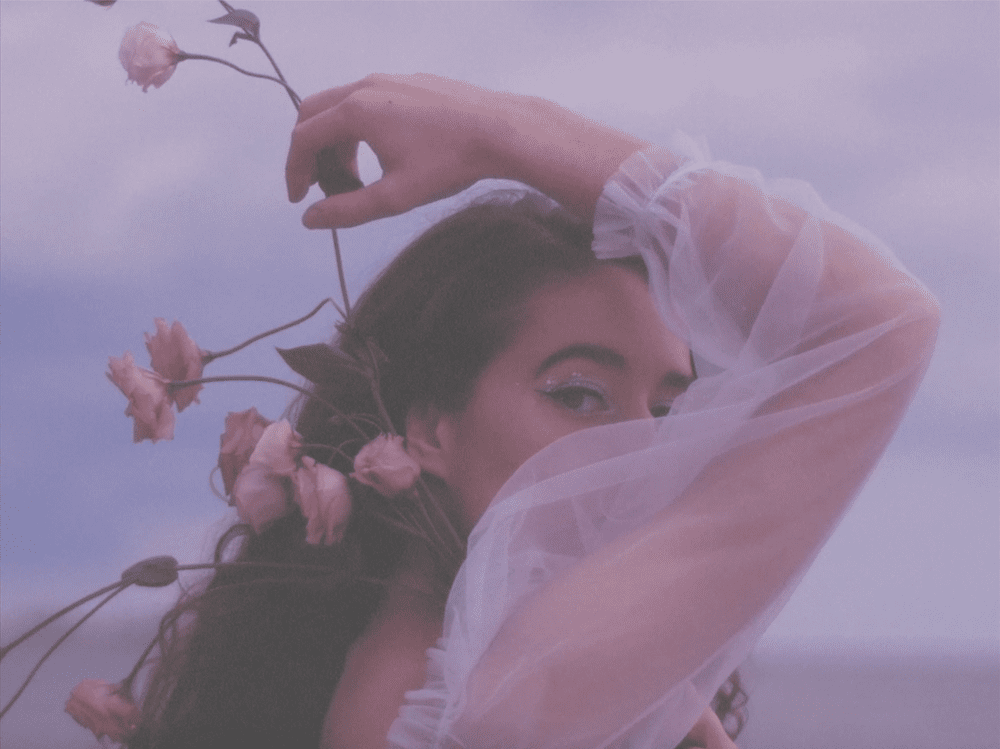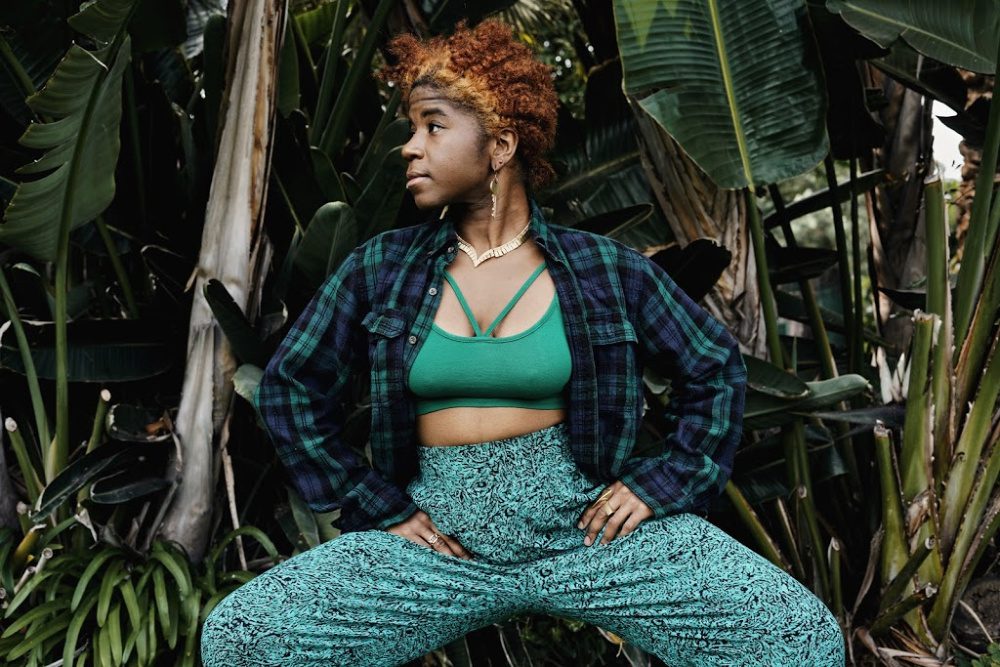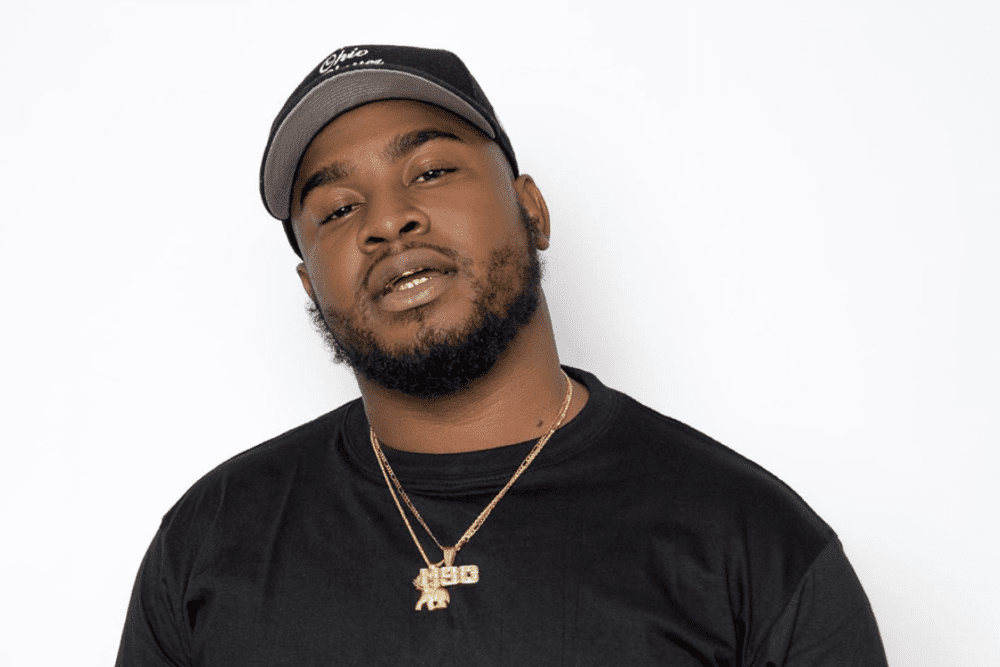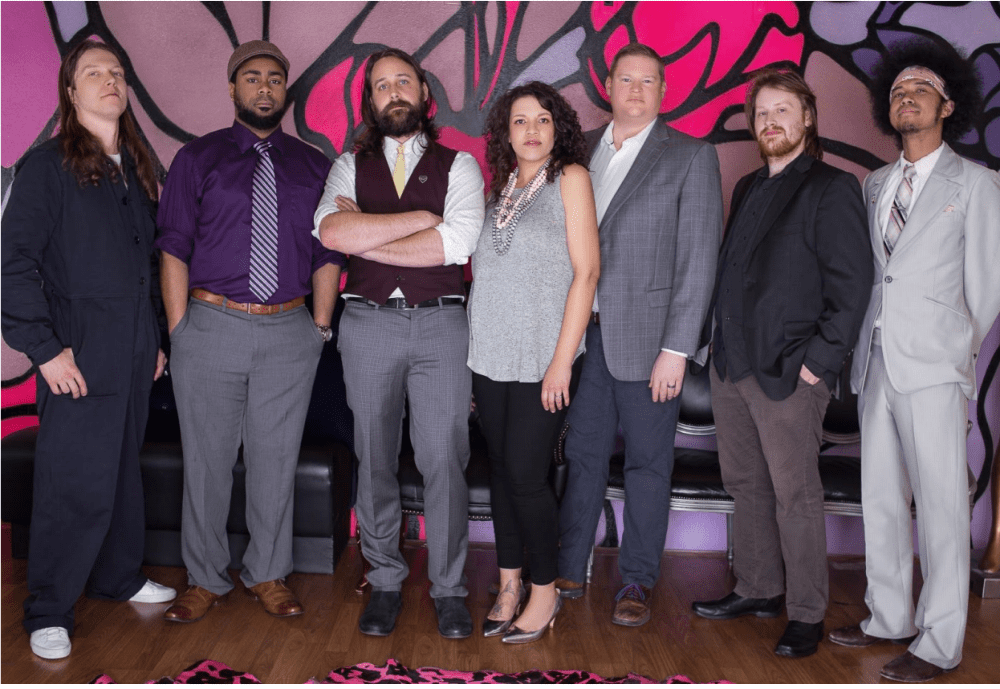

Seattle-based singer Marquetta Miller met most of her fellow bandmates in blistering soul fusion band Breaks and Swells while working a cocktail bar in Seattle’s Capitol Hill neighborhood. It’s in this same neighborhood, at a dive-y karaoke bar, that Miller met legendary Seattle producer, Erik Blood, who ended up sculpting their last release, We Will Not Despair.
We Will Not Despair, which dropped in July 2018, was an album that captured Breaks and Swells’ renewed focus after almost 8 years on the scene—and the election of Donald Trump. As Miller puts it, they decided to drift a little further from mimicking the influences that brought them together—throwback soul and R&B and the contemporary success of groups like Sharon Jones & The Dap Kings—toward more of their own sound. This also entailed getting more political than they had before, particularly with the title track. As KEXP said, the song was “a subversive act of joy in a situation that seems to feed on sucking away hope on a daily (okay, maybe hourly) basis.”
A year and half since sharing their subversive enthusiasm, Breaks and Swells are hard at work on their next batch of songs. Their forthcoming release promises to build on contemporary themes of news burn-out and desperation in the face of the Trump regime. The seven-piece group, which blends soul, funk, pop, and R&B, will be playing this Friday at Belltown Yacht Club. Miller sat down with Audiofemme this week to talk about the origins of her buzzy, mellow vocals, the new forces that have been moving Breaks and Swells creatively, and to tease the selection of new songs they’ll play on Friday.
This Q&A has been edited for length and clarity.
AF: Have you always been musical? Tell me about early influences that sculpted you into a singer.
MM: I just kind of always been that kid who wouldn’t stop singing. I always wanted to have the solos when I was little. I didn’t take voice lessons until I was quite a bit older, but I grew up in Fairbanks, Alaska in a time when school districts actually spent money on music education. I had a comprehensive music education from Pre-K through third grade. So, I knew how to do music already and I did band and choir.
AF: When did you move to Seattle? What about the music scene in Seattle was alluring to you?
MM: I moved to Seattle 14 years ago. I came down here to be mostly around the music scene. I did sort of have aspirations of going to Cornish and then I started one year at UAS in Fairbanks going to school for music and just decided I didn’t actually like it. I already had some friends who were down here doing music in some capacity—whether they were doing engineering work or also playing in bands—so I talked with some people who liked being here. Obviously, there are a lot of really cool bands. That was one thing that I really tripped out on in moving here like, those are the Blood Brothers and there’s Ben Gibbard at the breakfast stop. I was tickled by that.
Plus, I’ve been in the Central District for many years. I mean, there really is a history of R&B music here—obviously, Quincy Jones, but also Ray Charles lived here for quite some time and Stevie Wonder did as well.
AF: Do you still feel like that is part of Seattle?
MM: I mean, I do. If anything, I think that the scene has rallied around itself a little bit. I really feel I’m seeing an increase of really intentional support. People really making an effort to go to other people’s shows, promoting other people’s shows, making sure they’re posting pictures. If you can gas somebody up, then you do. I feel like this is a really supportive scene—and across genre too. I have lots of friends who are in other bands who aren’t necessarily of a similar genre to Breaks and Swells, but they come out to our shows and I go to theirs.
AF: Tell me how Breaks and Swells became a group.
MM: We’ll have been together for eight years this summer. I worked at Liberty, a cocktail bar at 15th and Republican, and our original bass-player Kevin was also working there. He lived with our drummer Derrick. Dylan, our guitar player, started working there at some point and I actually trained him, and that day all we did was talk about the playlist I was listening to and talk about music.
AF: Breaks and Swells has a very different sound as compared to other Seattle bands. There’s funk and jazz—and the sort of face-melting power of Tower of Power and Funkadelic that is not all that common from Seattle. What inspired your sound?
MM: I think, for the most part, we all grew up with an appreciation with some area of funk or soul, R&B. I grew up listening to a lot of Motown, eighties R&B and New Jack Swing stuff like Bobby Brown and Janet Jackson, obviously Boys II Men. I’m personally a massive Stevie Wonder fan (I saw him at Key Arena when he had the Songs in the Key of Life Tour, and it was amazing. I literally cried for three hours without stopping). But, we all love the Allman Brothers, Blood Sweat and Tears. We all have a lot of different influences. Our drummer is in a math rock band and listens to a lot of hard core and emo, and everyone is into everything.
I think with our first record and early on [we played off the heyday of] Sharon Jones and the Dap Kings, Charles Bradly, Lee Fields—there was a lot of throwback going on. All of those artists have that authenticity. We tried too hard to be throwback [at first] without really thinking about what kind of music we really wanted to make. So, I think We Will Not Despair, our last record, was really an attempt to figure out where those classic old-school influences meet a newer, more R&B-pop kind of sound.
AF: I know you’re not primarily a funk band, but you draw in so much of that influence I have to ask: every band that plays funk seems to have some sort of philosophical funky saying or catch-phrase. Does Breaks and Swells have one?
MM: There is a song on We Will Not Despair called “Bomb,” and we repeat “That bomb shit!” That kind of started as a joke but we realized it’s perfect. So, it’s like, at some shows we can really get people into yelling it with us, which is pretty fun.
On the recording of the song, there’s a whole section in the background of clapping, stomping, talking, laughing and Erik Blood literally running back and forth across the doors and windows of the booth trying to get us hyped. That was the last day of recording, and everyone was super loopy after six days of recording. Blood’s got that magic.
AF: So, tell me more about working with local producer Erik Blood. What does he bring to Breaks and Swells?
MM: We did a single with Erik about two years before we did We Will Not Despair, called “Wonderful.” I met Erik at an old Capitol Hill bar called The Bus Stop—this great divey gay bar—doing karaoke there like a million years ago and one of my friends insisted that we had to meet. We talked and we knew we would work together at some point. I ran into him every once in a while and then we [reached out to him] when we had that single to record.
Erik Blood has great bedside manner. He’s not necessarily nice in the studio, but he’ll tell you what you need to do and when you’re fucking up. This whole last record, I never got to hear my vocals in the bounce mixes. I think Erik didn’t want me to be neurotic about it. He really cracks me up. I like working with him a lot.
AF: I know your most recent album was a sort of a statement against the 2016 election. What was it you wanted to say?
MM: I wanted to say, “Hold on, guys.” Like, “This might suck, but we’re going to get there.” That attitude can be about many different things—like your relationship or the state of the world. I feel like in particular that title track, people seemed to really like it. It was one of those things where I got to have a couple little digs at the man in office without being super over the top. At the end of the day, if we can stick together and focus and not be burnt out, maybe we can get through this.
AF: Has the process of making and performing the album helped you cope with Trump’s presidency?
MM: Oh yeah. It’s funny [when I wrote the] first line of the song it started out as a love song, this obsessive idea of like you’re always on my mind, I can’t get you out of my head. And then I realized, oh, I’m doing this with the news right now. I’m like what’s on HuffPo, what’s on Politico, what’s on Slate? It’s a vicious feedback loop of freaking out but also not really doing anything but being stoned on the couch and being really upset. So, I thought, I can’t do this for four years.
I think [breaking that feedback loop] requires me to refocus a bit. I mean, like, Donald Trump is not the beginning or the end of the problems that are going on right now. I mean certainly, I think he’s exacerbating a lot of them and creating many unique moments on his own, but you know, it’s like, you have to decide what you’re going to focus on and where you can actually have some impact. Is it fighting with people on Facebook? I don’t think so.
I know people don’t like to talk about politics—I don’t know what that is. But I always thought that was weird that we don’t talk about politics. The government has a big impact on [how] our day-to-day lives operate. It seems odd to me to make it taboo to discuss that. I think it’s also why we can’t discuss it in a functional, rational way. We can’t separate it from emotion. Honestly, one of the big things too, is having sensitivity and care for myself. There are things that honestly aren’t worth arguing about. I don’t think it’s an argument worth having to say its okay to take children from their families and put them in cages and potentially lose them. There’s not justifiable argument for that. I’m not going to argue about it because I think it ultimately says something about your morality, not your intelligence.
AF: So does your work in Breaks and Swells feel more productive than your eyes than engaging in these sorts of arguments?
MM: Yeah, absolutely. I think that [using music for discussion] has really driven the writing on this next batch of songs—“Ladybugs” and “Bot Fly,” are already out in the world through live sessions we did with Adam Audio at Bob Lang’s. So, we’re getting into this idea: what are these simple ways that we can care for ourselves and also care for each other? How do we find ways to chill and connect [in the current context] and how do we know that it’s OK to do that?
“Ladybugs,” explores anxiety—where you just can’t leave the house, you can’t make the effort to put on pants. I think it also struggles with the idea of wasted potential. And then the other song, “Bot Fly,” is a comment on the bro-grammer culture that’s growing up around here, toxic masculinity. It’s this idea that a dude builds a robot girlfriend and she’s exactly what he wanted—which is the worst.
AF: So, the new album builds on the previous. When do you foresee it’ll come out?
MM: We’re just now talking with Erik Blood right now about recording in May. We think it’s going to be an EP.
AF: Tell me about the show on Friday at Belltown Yacht Club. Will you play those new songs and will there be anything special for fans to expect?
MM: Yeah, so “Ladybugs” and “Bot Fly” have been in our set for about the last six months—maybe longer. We actually are going to be playing two brand new, never heard before songs on Friday as well. And, because I’ve been teaching more, I’ve been playing a lot more guitar—because I don’t play piano. So, I’ve been playing guitar a lot more than I have in so long, so I’ve been trying to write on guitar for the first time since I was 20. So, one of the new songs we’re playing this weekend is a song that I wrote. It’s been a minute since there was a full Marquetta Miller original.
